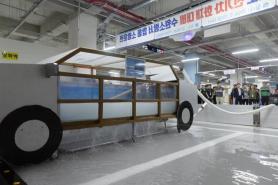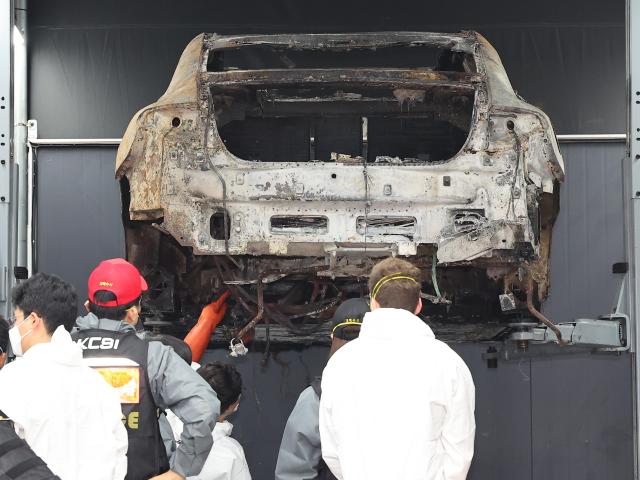
The incident took place in the underground parking garage of an apartment complex in Incheon, south of Seoul, on Aug. 1. The blaze started in an unplugged Mercedes-Benz electric car and took eight hours to extinguish. More than 20 people were injured due to smoke inhalation, and over 140 cars were destroyed or damaged.
The security camera footage of the sedan bursting into flames went viral, sparking widespread panic about EVs. Over 4,200 domestic news articles containing the words "EV" and "battery" have since been published. A Tesla EV fire in Lisbon on Aug. 17 further fueled fears.
A secondhand car dealer reported an 184 percent increase in the number of EVs listed for sale in the week following the incident, with prices dropping across the board between 1.1 percent and 3.7 percent.
The government and the ruling party frequently convened meetings to discuss measures to alleviate consumer apprehension and prevent a recurrence.
In an unprecedented move, companies went so far as to publicly disclose their battery suppliers for the first time.
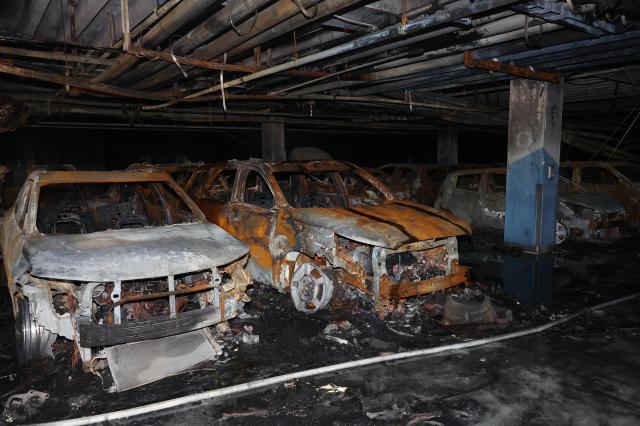
The incident is feared to further dampen the already shrinking EV market. EV sales in Korea dropped 16.5 percent year-on-year to about 65,000 units in the first half of this year, according to the Korea Automobile and Mobility Association.
Korean EV demand has been stuck in the adoption chasm between early adopters and the mainstream market since last year.
Experts also attribute the slowdown to the reduction of purchase subsidies early this year, the perennial shortage of charging infrastructure and concerns about battery safety.
Despite public perception, data shows EVs are less likely to catch fire than conventional vehicles. Government data indicated that EVs caught fire at a rate of 1.3 per 10,000 cars sold in 2023, compared with 1.9 for gasoline cars.
Hyundai Motor recently said the statistics exaggerated EV danger by including all incidents, including those caused by collisions and external factors, and counting other forms of electric mobility including micro-electric vehicles and three-wheelers.
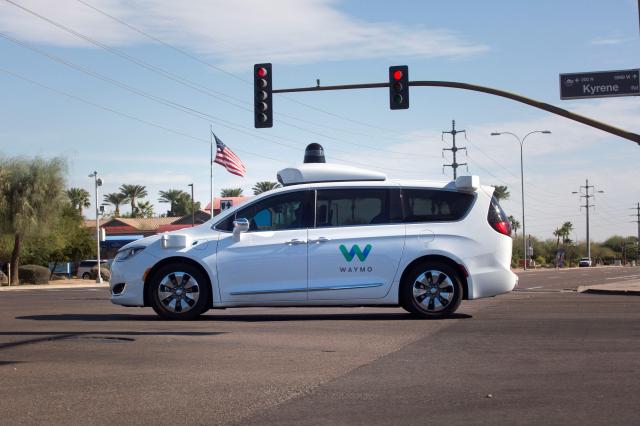
"Aren't there cases of gasoline cars suddenly exploding as well?" said Kim Ji-eun, a 28-year-old Audi Q4 e-tron owner. "I still recommend EVs to my friends, and I plan to purchase a Hyundai or Kia EV model for my next vehicle," she added, citing EVs’ lower fuel expenses, discounts on tolls and parking fees, and government support.
However, EV fires are more dangerous than those in gasoline cars due to the thermal runaway effect within batteries, a chain reaction that causes uncontrollable self-heating. EV fires are also harder to control because the batteries are tightly sealed in metal casings.
Lithium-ion batteries are particularly vulnerable to external impacts and overcharging, experts say. Even minor damage to the separator within the battery can trigger a dangerous heat cycle. Over time, the formation of dendrites—thorn-like lithium-ion crystals—can puncture these separators, further increasing the risk of thermal runaway.
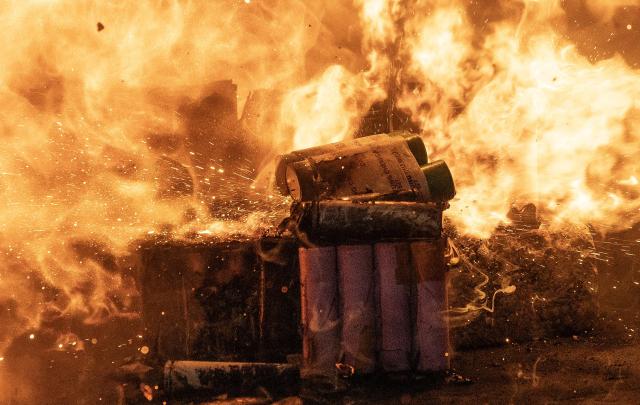
The government advised carmakers to disclose their battery suppliers, information previously kept secret by the industry. Starting with Hyundai Motor on Aug. 9, automakers and importers voluntarily made the information public on their websites.
Last week, the government and the ruling People Power Party (PPP) agreed to make the disclosure mandatory.
During a meeting on Aug. 25, they also agreed to introduce an EV battery certification system on a trial basis in October, earlier than scheduled. Under this program, only government-approved EV batteries will be allowed for sale.
Fire departments nationwide will be equipped with specialized EV fire suppression equipment, and the development of unmanned firefighting vehicles for underground spaces is being considered as a long-term project, the PPP said.
The installation of wet sprinkler systems will be mandated in all newly constructed underground parking facilities. The Incheon fire was exacerbated because the sprinklers did not work properly.
"The Incheon fire was exacerbated by the five-minute delay in activating the sprinklers," Professor Kong Ha-sung from the Department of Fire and Disaster Prevention at Woosuk University said. "Malfunctions can occur in sprinklers and other fire safety equipment, but Korea still struggles to accept this reality," he noted referencing a similar case from 2019.
The National Fire Agency is conducting a three-month fire safety inspection of apartment underground parking lots from Aug. 21 to Nov. 20.
Seoul City plans to ban EVs charged over 90 percent from entering underground parking lots.
These measures are expected to be included in a comprehensive EV safety management plan the government will announce in early September.
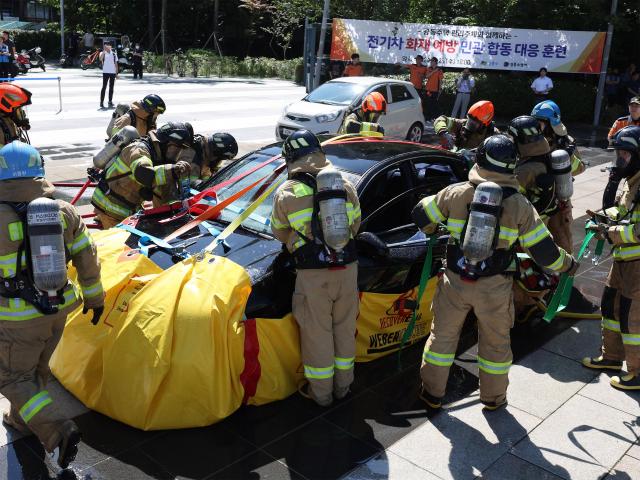
Hyundai Motor pledged Thursday to rigorously manage quality in collaboration with battery cell manufacturers and prevent major incidents through proactive diagnostics using their BMS.
"We are also strengthening our measures to minimize blind spots in our battery anomaly notification system,” the company said.
Korean researchers are also developing the next generation of secondary batteries. Led by the Korea Research Institute of Chemical Technology (KRICT) and six other institutes, the group aims to develop more efficient and safer next-gen batteries by 2028.
The scientists are working on four types of batteries: lithium-metal batteries with higher energy storage capacity, lithium-sulfur batteries which are lighter, solid-state batteries which are much less likely to explode, and non-lithium batteries which require fewer imported materials.
Copyright ⓒ Aju Press All rights reserved.




